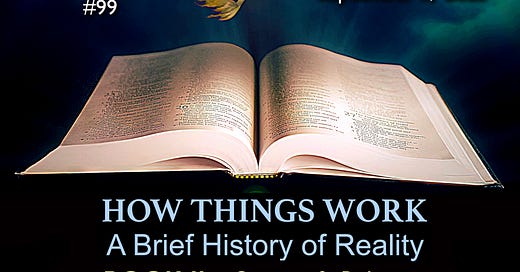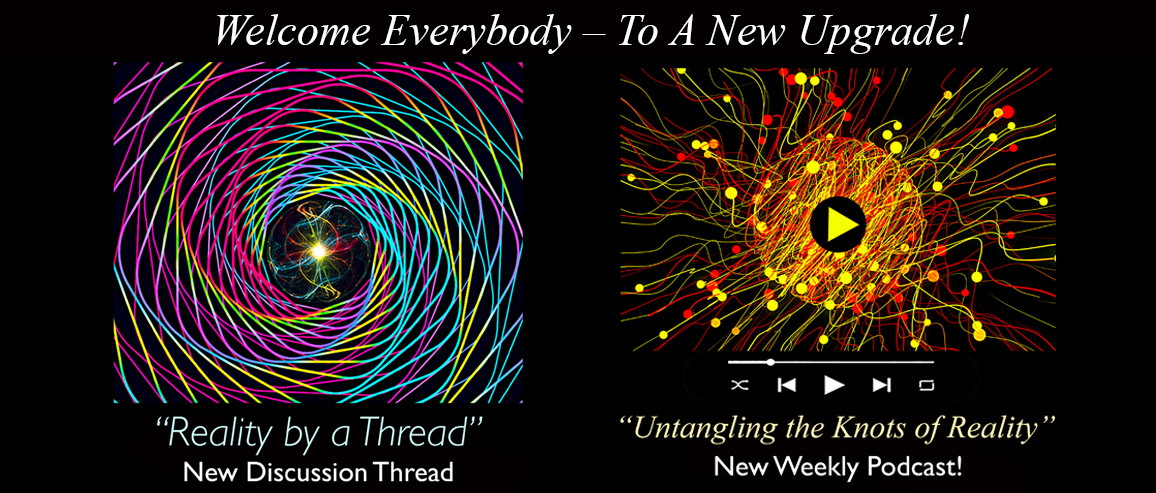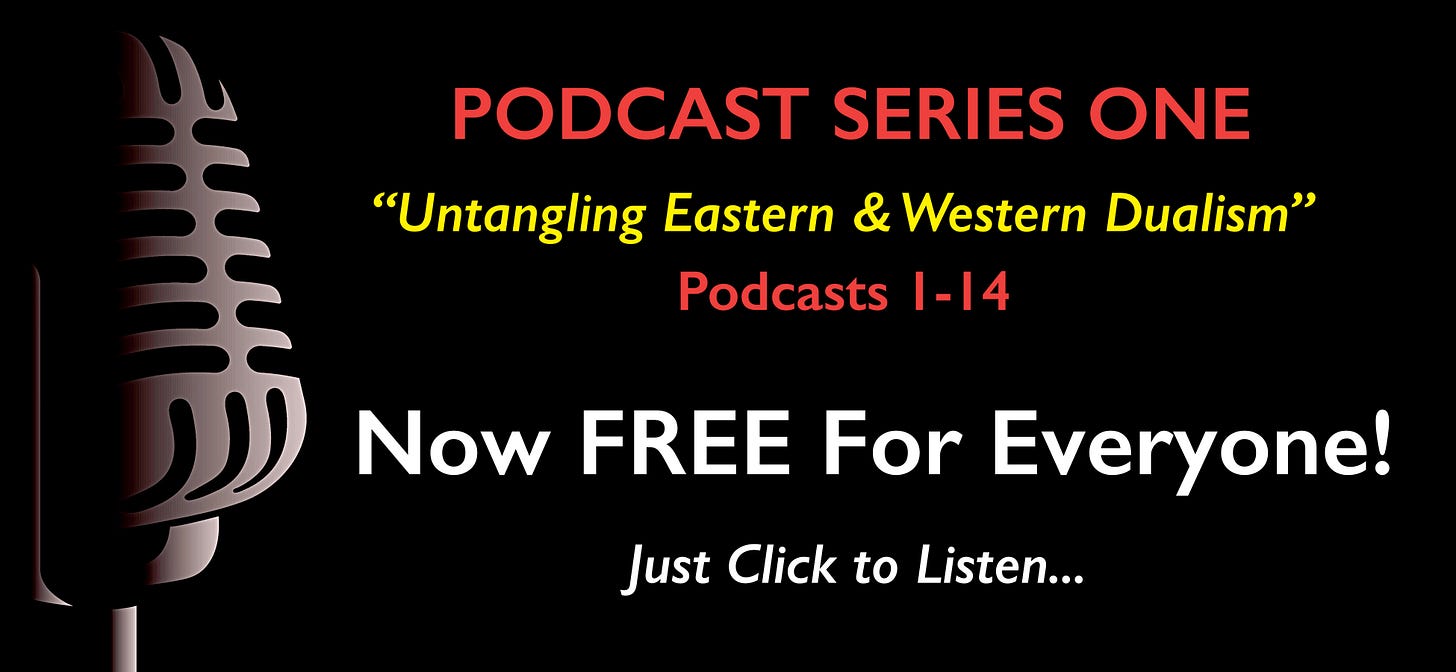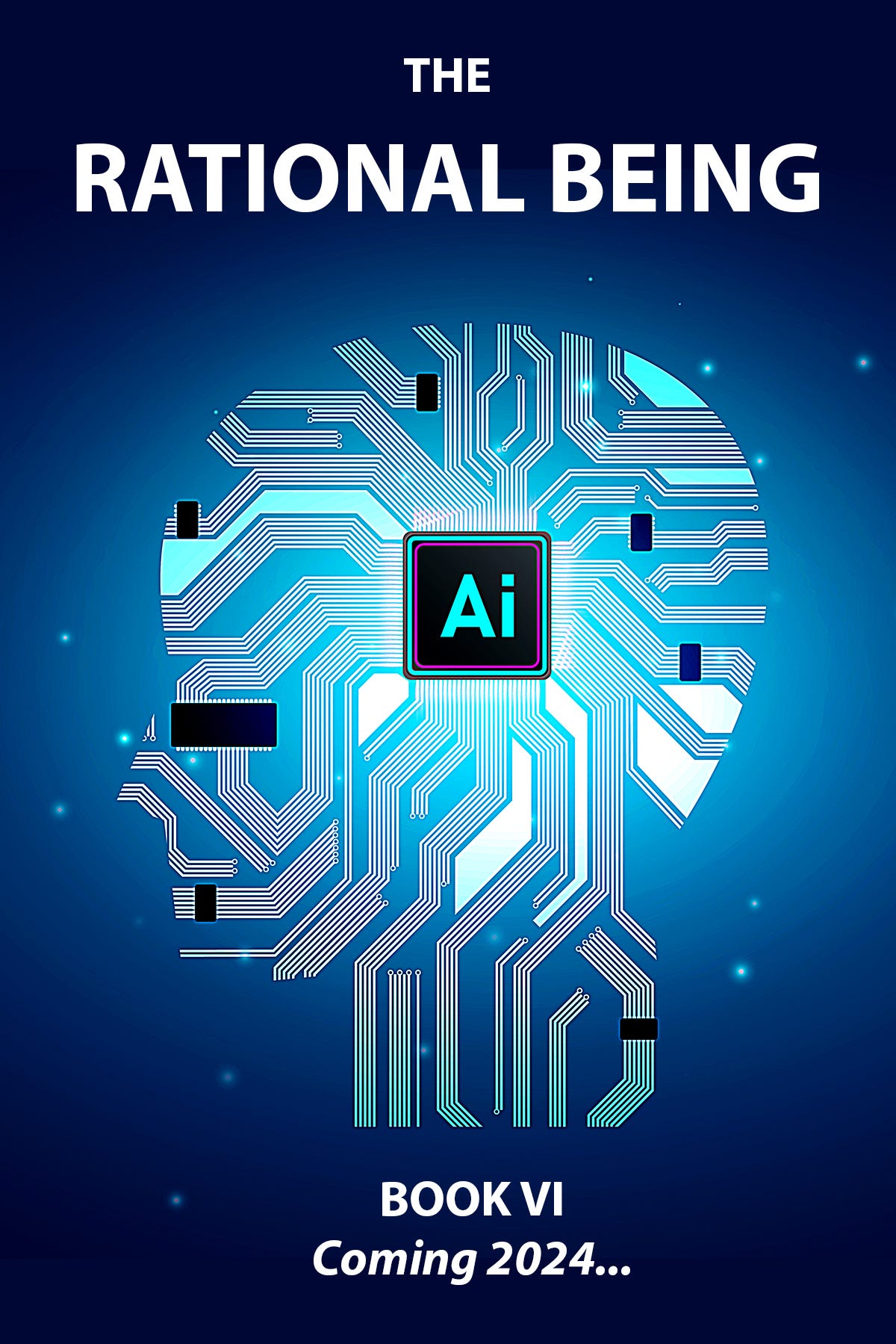How Things Work: A Brief History of Reality
BOOK II: The Power of Three (Science & Religion) – Consideration #99. "The New Testament"
Be A Part of the Conversation!
Tuesday September 5, 2023
In the beginning was the Word, and the Word was with God, and the Word was God. He was with God in the beginning. Through him all things were made; without him nothing was made that has been made. In him was life, and that life was the light of all mankind. The light shines in the darkness, and the darkness has not overcome it.
John 1:1-5
PREFACE
Welcome Everybody!
It never occurred to the original followers of Jesus that what we consider to be “Christianity” could ever be considered “non-Jewish.” Jesus was a Jew. The apostles were all Jewish. The whole point of a Messiah was to fulfill Jewish prophecy. Everything about “Christianity” was “Jewish.” Judaism was the foundation of the “New Testament” that Jesus had shared with his disciples and followers. What was this New Testament?
“From the ‘Christian’ perspective the Old Testament is the foundation of the New Testament…”
The essential message of the New Testament is that it is the inevitable result of the Old Testament. Jesus does not want to “change” the “ideas” behind “The Law,” he wants human beings to recognize the next logical step regarding their “divine” implementation. From the “Christian” perspective the Old Testament is the foundation of the New Testament because Jesus was the fulfillment of all Old Testament prophecy; he was not just another prophet. He was the Messiah.
“Jesus was the descendent God had promised to Eve who would one day crush the serpent’s head…”
The Messiah is a “transforming” figure. He changes things! It is clear that Jesus was not disrespectful toward Moses or The Law; he, however, was here to fulfill The Law; thereby transcending it. Jesus was the descendent God had promised to Eve who would one day “crush the serpent’s head” ridding the world of “original sin” and restoring the possibility for Unity with God. The same prophecy warns of a cost; the Messiah would be “wounded.”
“Jesus did not come to ‘change’ The Law; he came to offer us ‘another world.’”
In the “physical world” The Law would always be necessary. Jesus was not here to change that. Jesus did not come to “change” The Law; he came to offer us “another world.” The Kingdom of Heaven. The New Testament is not concerned with implementing God’s Law; it is a declaration of God’s Love.
CONSIDERATION #99 – The New Testament
From the Biblical perspective, God had consistently attempted to establish a direct personal relationship with human beings after their fall from grace in the Garden of Eden. His first attempt ended in a furious anger resulting in the Great Flood; ridding the earth of its wicked occupants. His second attempt involved a personal covenant made with Abraham and completed through Moses that was somewhat more successful; He did not wipe out the Israelites! Instead, giving them the Law and separating Himself from them lest He eliminate them out of anger. However, at a deep level God loved human beings and yearned for a personal relationship with them.
“God’s anger had often been intimidating; however, God’s Love would be transforming.”
The key factor in the third Biblical turning point is God’s Love. While the Old Testament focused on a wrathful God demanding sacrifice and obedience, the New Testament proclaims a God who Himself sacrifices and implores forgiveness for sinners. God’s anger had often been intimidating; however, God’s Love would be transforming. Not embracing the characteristics of the traditional Messiah anticipated by the Jewish leaders and people at the time, many misinterpreted the earthly mission of a young unknown Jewish prophet. Jesus of Nazareth came not to challenge the law, but to fulfill and transcend it.
In the first verse of John, Jesus is recognized as “the Word of God” physically manifested into the world. This direct connection to God through the “logos” constitutes a theology that would eventually lead to the concept of the Holy Trinity. However, this presented problems for a strictly monotheistic religion, such as Judaism.
“…challenging the complete and necessary ‘oneness’ of God was the essential reason Jesus was crucified for blasphemy.”
In fact, challenging the complete and necessary “oneness” of God was the essential reason Jesus was crucified for blasphemy. Jesus had claimed to be “the son” of God, the physical manifestation of the Word. Thus, from the standpoint of Jewish orthodoxy, separating God into physical and non-physical, or human and non-human, was considered blasphemous. While a completely unique way of considering and understanding the nature of God, and theology itself, it was irreconcilable with the essence and heart of Judaism.
Therefore, the newly formed Jewish sect of “Christians” would eventually break with Judaism and proclaim a “New Testament” of God that for them completed the Jewish tradition and God’s original plan for human beings. The New Testament begins with the four Gospels, each illuminating a different facet and aspect of the Good News about God’s ultimate Love, Redemption and Salvation for all human beings.
“The first three gospels; Matthew, Mark, and Luke, are called the synoptic gospels, because they share a similar ‘synopsis’ of who Jesus was…”
The New Testament begins with the Good News, or Gospel, which is contained in four simple narratives written over two-thousand years ago about the life and teachings of a young Jewish prophet named Jesus. The first three gospels; Matthew, Mark, and Luke, are called the synoptic gospels, because they share a similar “synopsis” of who Jesus was and what he did. However, the fourth gospel, John, is a gospel unto itself both narratively and theologically. These narratives encapsulate more than just the greatest story ever told; they are the seeds of the greatest and most influential religion in Western Civilization: Christianity.
POSTSCRIPT
In the “Acts of the Apostles,” after the crucifixion, a zealous Pharisee volunteers to pursue the remaining followers of Jesus and wipe them out, and ridding Judaism of their blasphemous scourge forever. However, on the road to deliver this retribution he is struck down by a vision of the resurrected Christ. Paul not only converts to Christianity, but he also becomes its most proficient and prolific evangelist. In fact, it is Paul who first brings Christianity to Rome.
“Paul held Roman citizenship, giving him the opportunity to bring the gospel there.”
Paul never met the living Jesus. However, he believed his experience with the “resurrected Christ” to be a more direct and powerful experience of Divine Truth than even the apostle’s living relationship with Jesus. Paul held Roman citizenship, giving him the opportunity to bring the gospel there. Paul also had a great influence on Peter. Paul’s doctrinal interpretation and Peter’s direct physical and spiritual connection to Jesus become the spiritual foundation and pillars for the Roman Catholic Church.
“It is not so surprising that a Roman church might pursue ‘Inquisitions’ and ‘Holy Wars.’”
However, a Roman church inevitably reflects Roman values. Rome was a warrior nation. Violence was not only a part of its culture, but also a critical part of their structure and society. When we think of Rome we generally think of the Coliseum! It is not so surprising that a Roman church might pursue “Inquisitions” and “Holy Wars.”
The irony of a violent warrior nation like Rome converting to a religion of peace and forgiveness is astounding; some might call it miraculous. This new religious institution had its roots in the transformational ministry of Jesus, the philosophical traditions of ancient Greece, and a bloodthirsty empire obsessed with conquering the world, Rome. The Roman Catholic Church was the manifestation of a new worldly power born of completely incongruent realities.
This new institutionalized religion founded on a conglomeration of seemingly incompatible realities including Jewish gospels, ancient Greek metaphysics, and Roman values, would come to dominate the Western world for over a thousand years and influence it to this very day. The Roman Catholic Church would develop complex sophisticated Christian theology, dogma, and tradition for its followers. And, ironically, it would also become the fountainhead of science.
Next week we will begin our consideration of the Gospels…
Earn Rewards for Referral Subscriptions! Click to Learn More…
This Week on “The Thread”…
Expand the Conversation by Upgrading to “Reality by a Thread!”
•Untangling the Knots of Reality: Podcast #59 “Absolute Idealism and The End of Rationalism & Empiricism”
Who is Georg Wilhelm Friedrich Hegel, and why is he likely the most influential person you have never heard of? How did his philosophy of Absolute Idealism shatter our concepts related to Rationalism and Empiricism? Is it possible that our perception of physical and rational reality is a complete illusion? These are some of the knots we will attempt to untangle in this weeks’ podcast. That’s a lot of Hegel for one podcast!
So, let’s get started…
• REALITY BY A THREAD: BOOK VI PREVIEW (The Rational Being )
Short Story: “Perfection” – Part 3 (“It turns out the that the perfect world is not so perfect for the human beings remaining in it. Ironically, being exposed to someone else’s constant perfection will drive you crazy! In the end, the human desire for perfection gives way to the human desire for freedom…”)
•FREE PDF Download of Book IV: “The Cosmic Symphony – Overtones of String Theory” plus other Free Books, Discounts and Benefits. Also Gain Complete Access to all Previous Podcasts and Threads!
UPGRADE NOW!
Available Now!
Excerpt from PODCAST #13: "Untangling Self-Evident Truth"
If you find yourself growing tired of the same old meaningless fluff, this may be the Podcast you’ve been looking for!
Podcast #1 – A Lot of Explaining
Podcast #2 – Untangling Mathematics & Metaphors
Podcast #3 – Untangling the Garden of Eden
Podcast #4 – Untangling The Physical World
Podcast #5 – Untangling the Rational Mind
Podcast #6 – Untangling Eastern & Western Dualism
Podcast #7 – Untangling Zen & the Shaolin Temple
Podcast #8 – Untangling the Mystery of Taoism
Podcast #9 – Untangling The Noble Eightfold Path
Podcast #10 – Untangling Plato's Realm of Forms
Podcast #11 – Untangling Aristotle's Metaphysics
Podcast #12 – Untangling Happiness & Virtues
Podcast #13 – Untangling Self-Evident Truths
Podcast #14 – Untangling The Cosmic Symphony
“Untangling the Knots of Reality – Be A Part of the Conversation!”
“To understand the nature of Artificial Intelligence you have to understand the nature of Quantum Consciousness. But first you have to understand the nature of Human Beings. What is the actual distinction between how human beings think and how digital intelligence thinks?”
– Frank Elkins, The Rational Being







